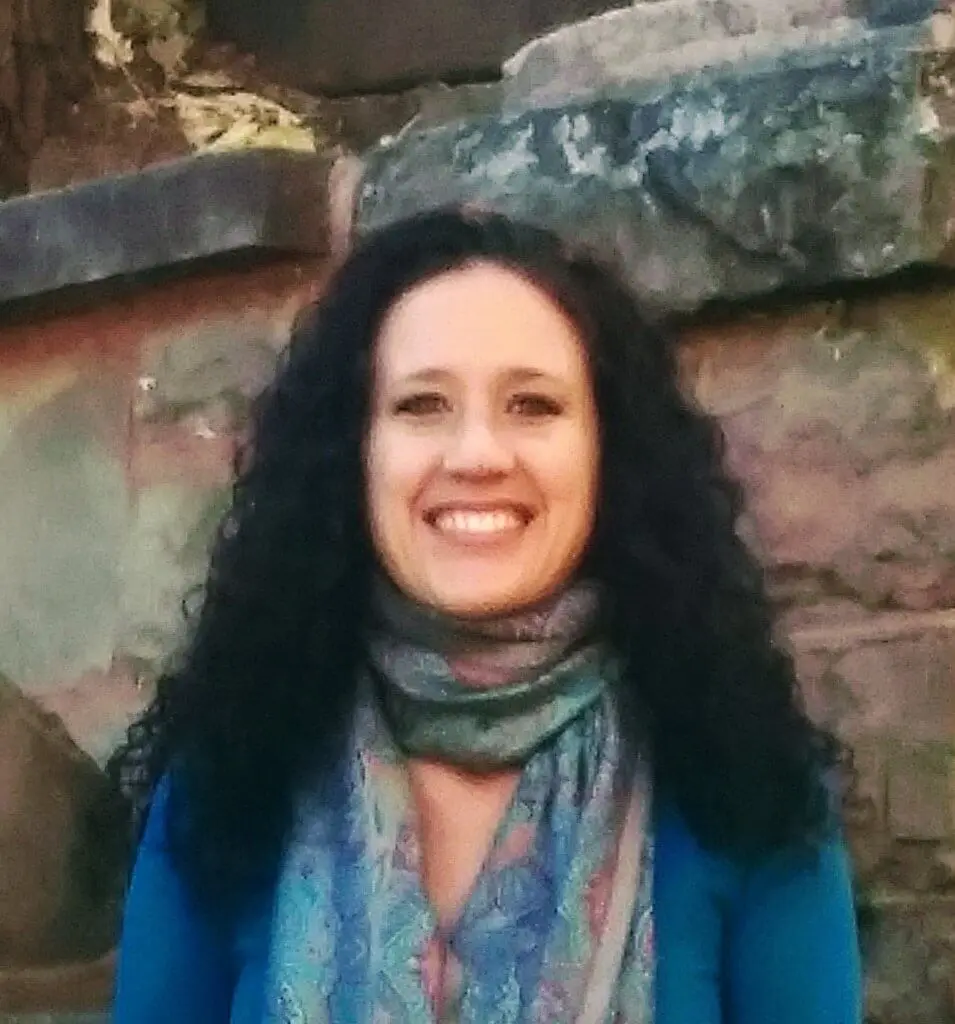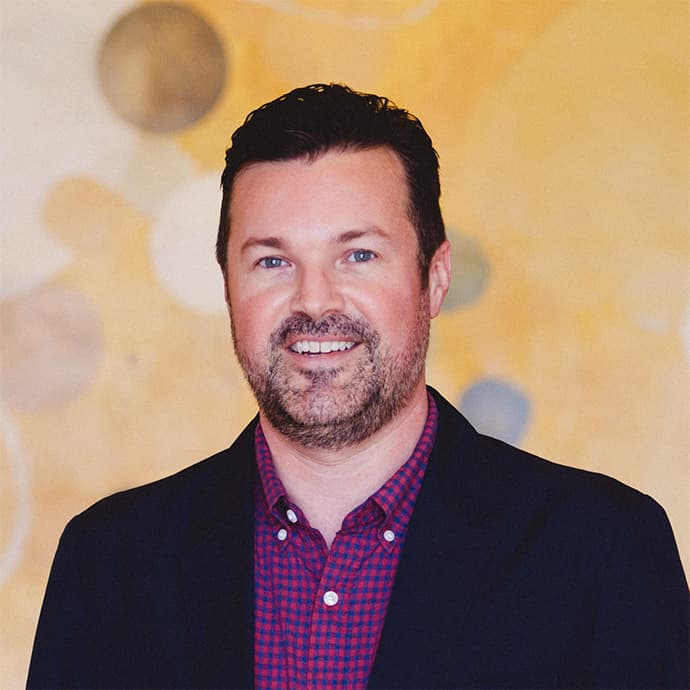What Are the Symptoms of Tranquilizer Overdose?



Cassandra Keuma is a Licensed Professional Counselor with 12 years of experience and a 500-hour certified Yoga Therapist who takes a holistic, compassionate approach to healing. She specializes in trauma, PTSD, anxiety, depression, addiction recovery, and life transitions, integrating evidence-based therapy with mindfulness and somatic practices.

Dr. Scot Thomas received his medical degree from the University of California, San Diego School of Medicine. During his medical studies, Dr. Thomas saw firsthand the multitude of lives impacted by struggles with substance abuse and addiction, motivating him to seek a clinical psychiatry preceptorship at the San Diego VA Hospital’s Inpatient Alcohol and Drug Treatment Program.




Cassandra Keuma is a Licensed Professional Counselor with 12 years of experience and a 500-hour certified Yoga Therapist who takes a holistic, compassionate approach to healing. She specializes in trauma, PTSD, anxiety, depression, addiction recovery, and life transitions, integrating evidence-based therapy with mindfulness and somatic practices.

Dr. Scot Thomas received his medical degree from the University of California, San Diego School of Medicine. During his medical studies, Dr. Thomas saw firsthand the multitude of lives impacted by struggles with substance abuse and addiction, motivating him to seek a clinical psychiatry preceptorship at the San Diego VA Hospital’s Inpatient Alcohol and Drug Treatment Program.
Can You Overdose on Tranquilizers?
Tranquilizers are a class of medications that can cause mild sedation or anesthesia, provide relief from anxiety, induce sleep, or prevent seizures.1
Tranquilizer overdose occurs when a person takes more than a prescribed therapeutic dose, either intentionally or unintentionally. A person who has been abusing tranquilizers should seek addiction treatment to help them recover from an overdose.
Signs and Symptoms of Tranquilizers Overdose
According to the National Institute on Drug Abuse, the 3 most common tranquilizers are:6
- Barbiturates – The use of barbiturates has declined over the years due to the risk of adverse reactions, overdose, and dependence. Their medicinal use for anxiety and sleep has been replaced by benzodiazepines and sleep medications. However, they are still used for anesthesia and to treat seizure disorders.2
- Benzodiazepines – These medications are typically used to treat anxiety and panic disorders.3 A large class of drugs, benzodiazepines are sometimes sub-classified according to potency, speed of onset of effects, and half-life. Some of the more commonly prescribed drugs include Xanax, Ativan, Klonopin, and Valium, among others.
- Sleep medications – These medications are considered hypnotic (or, sleep inducing) tranquilizers. They act on the GABA receptors to induce sleep for those who suffer from insomnia. Some popular sleep medications include Lunesta, Ambien, and Sonata.6
Barbiturate Overdose Symptoms
- Loss of coordination
- Slurred speech
- Difficulty thinking and/or concentrating
- Loss of consciousness
- Abnormally low blood pressure and heart rate
- Respiratory depression or the cessation of breathing
- Shock
- Kidney failure
- Death2
Benzodiazepine Overdose Symptoms
- Loss of coordination
- Paradoxical agitation
- Blurred vision or other visual impairments
- Slurred speech
- Confusion
- Amnesia
- Drowsiness or unresponsiveness
- Altered mental status
- Hallucinations
- Abnormally low blood pressure
- Dizziness
- Respiratory depression
- Coma7
Sleep Medication Overdose Symptoms
- Agitation
- Dizziness
- Confusion
- Amnesia
- Altered mental status
- Hallucinations
- Low blood pressure
- Cardiovascular arrest
- Respiratory depression
- Unresponsiveness
- Coma4,5
If you observe any of the above symptoms and suspect that you or someone you love has overdosed on tranquilizers, it is important that you call 911 immediately. Remain with your loved one or friend and attempt to keep him or her awake until emergency medical personnel arrive.
More Information on Barbiturates Addiction & Recovery
Risk Factors for Overdose
- Age – Younger and older people may react differently to medications and be more sensitive to their effects.3,4,5
- Length of time of use – The long-term use of barbiturates can lead to tolerance. People who develop tolerance may take more of a prescribed medication than was previously necessary to receive the same benefit. Unfortunately, although the person’s tolerance may have increased, the lethal dose of barbiturates remains the same, making an accidental overdose more likely the longer barbiturates are taken.2
- Use of other central nervous system depressants – Tranquilizers used in combination with other central nervous system depressants, such as alcohol, can increase the chances of a fatal overdose.2
- Existence of certain medical conditions – Tranquilizers slow many of the body’s natural processes, including breathing and heart rate. Someone who has a pre-existing heart or lung condition may be at greater risk for overdose.
Tranquilizer Overdose Treatment
According to the National Institute on Drug Abuse, there are currently no FDA-approved medications to specifically treat prescription sedative addiction.6
Flumazenil, a GABA receptor antagonist, has been shown to help with some of the sedative effects of some tranquilizers. It may be used in the case of a tranquilizer overdose, though it may cause withdrawal and seizures in long-term users.4,5,7,8
Treatment for a tranquilizer overdose is primarily supportive and can include:
- Maintaining the airway and using ventilation support.
- Stomach pumping.
- Activated charcoal, particularly for barbiturates.
- Administration of fluids via IV.4,5,8
Can You Die from a Tranquilizer Overdose?
A barbiturate overdose can be fatal.
- Barbiturates – An overdose of barbiturates can be fatal. It is estimated that 1 out of every 10 people who overdose on barbiturates or a mixture containing barbiturates will die.1 There is a slim margin between the dose of barbiturates that is therapeutic and the amount that can be fatal. The risk of death by intentional or unintentional barbiturate overdose is amplified by combining them with other central nervous system depressants.
- Benzodiazepines – An overdose on benzodiazepines alone is unlikely, as they carry a very low risk for acute toxicity. But when benzodiazepines are used in combination with other central nervous system depressants, such as alcohol, the combination can be fatal. It is estimated that up to 41% of those abusing alcohol will also abuse a benzodiazepine medication at some point in their lifetime. Up to 80% of benzodiazepine abuse is part of polysubstance abuse.3
- Sleep medications – A fatal overdose on a sleep medication is rare. However, as with the other classes of tranquilizers, the risk of depression of breathing and heart rate is significantly increased if you are taking sleep medications with depressants such as alcohol or opiates.4,5
Recovering From an Overdose
The likelihood of surviving a tranquilizer overdose is increased if it is the only substance in a person’s system. However, many people abuse other substances in combination with tranquilizers, making the potential for fatality much more likely.
If you or a loved one has been fortunate enough to recover from a tranquilizer overdose, it is important that you seek help. Seeking addiction treatment can help you change the course of your life and drastically reduce the chance of a future overdose. If you are considering treatment as an option, there are several levels of care that could be appropriate.
- Residential or Inpatient tranquilizer rehab programs can last anywhere from 28 days to several months. You will be in a safe environment surrounded by others who understand what you are going through. You will receive medical, psychiatric, therapeutic, and nutritional care throughout your stay. Many programs also include detox.
- Outpatient tranquilizer recovery can take many forms, from meeting weekly with a therapist to attending a program multiple days a week. Programs can vary in terms of time commitment and level of care. Outpatient offers more flexibility than inpatient, but people who have serious substance abuse problems may need a higher level of care.
- 12-step programs – Twelve-step programs such as Narcotics Anonymous and Pills Anonymous provide a free, mentor-based recovery program that involves making amends to those you have harmed in addiction and embracing a higher power. Non-12-step options include SMART Recovery and Secular Organizations for Sobriety.
Find a Recovery Center
If you've experienced a tranquilizer overdose or are with tranquilizer misuse, support is available. Explore treatment options and connect with centers that understand what you're going through and offer the care you need. With the right support, you can build a safer, healthier path forward.
FAQs
-
[1]. U.S. National Library of Medicine. (2015). Barbiturate intoxication and overdose. https://medlineplus.gov/ency/article/000951.htm
-
[2]. European Monitoring Centre for Drugs and Drug Addiction. (2015). Barbiturates drug profile. http://www.emcdda.europa.eu/publications/drug-profiles/barbiturates
-
[4]. U.S National Library of Medicine. (2016). Label: Lunesta – eszopiclone tablet, coated. https://dailymed.nlm.nih.gov/dailymed/index.cfm?setid=fd047b2b-05a6-4d99-95cb-955f14bf329f
-
[5]. U.S. National Library of Medicine. (2016). Label: Ambien – zolpidem tartrate tablet, film coated. https://dailymed.nlm.nih.gov/dailymed/index.cfm?setid=c36cadf4-65a4-4466-b409-c82020b42452
-
[6]. National Institute on Drug Abuse. (2016). Commonly abused drug charts. https://www.drugabuse.gov/drugs-abuse/commonly-abused-drugs-charts
-
[7]. Gresham, C. (2016). Benzodiazepine toxicity: Practice essentials. https://emedicine.medscape.com/article/813255-overview
-
Oxford University Press. (n.d.). Sedative-hypnotic drugs. In Oxford textbook of clinical toxicology. https://academic.oup.com/book/29516/chapter/248088282
-
Amboss. (n.d.). Sedative-hypnotic drug overdose. https://www.amboss.com/us/knowledge/sedative-hypnotic-drug-overdose
-
Simone CG, Bobrin BD. Anxiolytics and Sedative-Hypnotics Toxicity. [Updated 2023 Jan 13]. In: StatPearls [Internet]. Treasure Island (FL): StatPearls Publishing; 2025 Jan . https://www.ncbi.nlm.nih.gov/books/NBK562309/?
-
Bounds CG, Patel P. Benzodiazepines. [Updated 2024 Jan 30]. In: StatPearls [Internet]. Treasure Island (FL): StatPearls Publishing; 2025 Jan. https://www.ncbi.nlm.nih.gov/sites/books/NBK470159/
Our Promise
How Is Recovery.com Different?
We believe everyone deserves access to accurate, unbiased information about mental health and recovery. That’s why we have a comprehensive set of treatment providers and don't charge for inclusion. Any center that meets our criteria can list for free. We do not and have never accepted fees for referring someone to a particular center. Providers who advertise with us must be verified by our Research Team and we clearly mark their status as advertisers.
Our goal is to help you choose the best path for your recovery. That begins with information you can trust.











